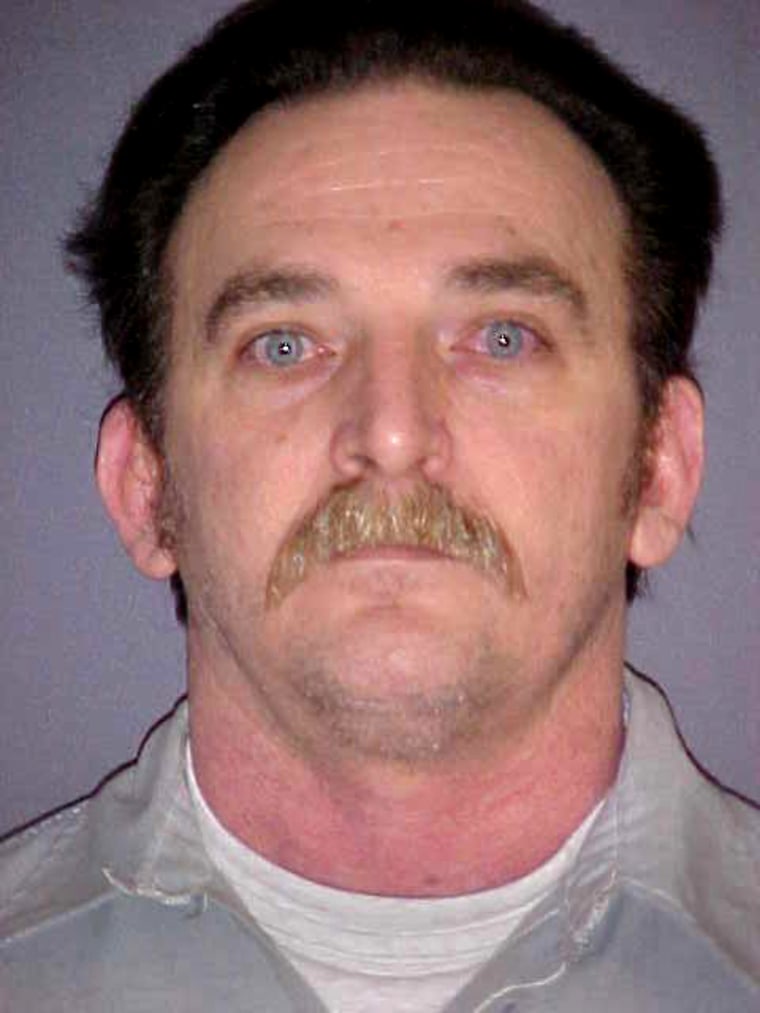The state parole board refused Tuesday to block the execution of a death row inmate who is dying of cancer.
Jimmy Dale Bland is to be executed June 26 for the Nov. 14, 1996, murder of 62-year-old Doyle Windle Rains 11 years ago.
He is "on the verge of death" with advanced lung cancer that has spread to his brain and his hip bone despite radiation and chemotherapy, defense attorney David Autry told the five-member Oklahoma Pardon and Parole Board.
Even if the 49-year-old man were not executed, doctors have said he has as little as six months to live, Autry said.
The board voted 5-0 to deny clemency. Bland chose not to address the board via videoconference from his cell at the Oklahoma State Penitentiary in McAlester and did not speak to board investigators before Tuesday's hearing.
"He feels at this point that all hope is lost," Autry said.
He said Bland's death sentence should be commuted out of "simple decency and mercy for a person who is terminally ill and is going to die anyway."
'Cancer doesn't change' trial verdict
Assistant Attorney General Seth Branham said Bland's medical condition was not grounds for clemency, and that Bland forfeited his right to die of natural causes when he shot the victim in the back of the head.
"Cancer doesn't change what happened at that trial," Branham said.
The victim's stepdaughter, Christina Stringer, and her husband, Gary Stringer, also urged the board to deny clemency. She said Rains helped Bland and gave him a job.
"He's had enough compassion," Gary Stringer said of Bland. "He's had enough mercy. We need some justice here."
Bland spent 20 years of a 60-year sentence in prison after pleading guilty to manslaughter and kidnapping charges in 1975. He had been out of prison for about a year when he was accused of shooting Rains to death.
The U.S. Supreme Court rejected Bland's final appeal in April.
Autry said courts had found prosecutorial misconduct in Bland's trial but that the acts were not serious enough to reverse the conviction and order a new trial.
